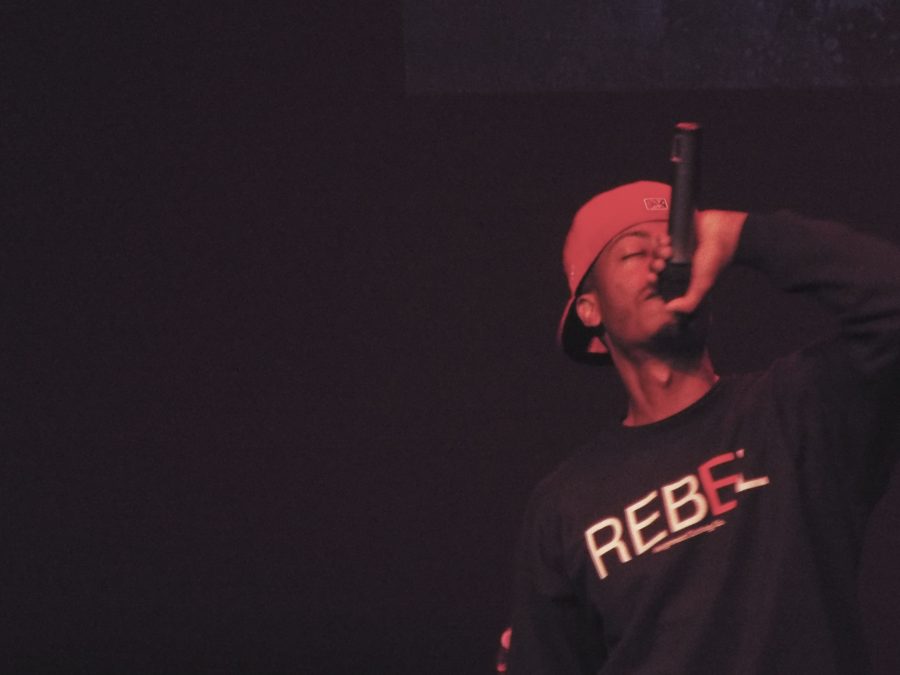Sharp connections between hip hop and social change
Philip “Sharp Skills” Jacob performed at EdCC’s BlackBox Theatre on November 17. His lyrics examine social injustices and the importance of challenging oneself.
December 5, 2016
“Music is not just entertainment,” Philip “Sharp Skills” Jacob announced onstage in the BlackBox Theatre during a Triton Talk on November 17.
Jacob, a hip-hop star who began recording at age ten, visited EdCC to talk about using hip-hop for social change. His performance illustrated his point as he addressed politics, race, social injustice and personal achievement in rapid-fire lyrics.
Hip-hop emerged in the 1970s in New York City as an elaboration of deejaying. The DJ might extend an instrumental break or sample a drum beat to give people more time to dance and then speak in rhythm, in essence rapping.
The Merriam-Webster dictionary defines hip-hop as “the stylized rhythmic music that commonly accompanies rap,” but hip-hop is also a culture in and of itself.
According to Jacob, “Hip-hop is a revolutionary art form and culture that enables those who practice it to tell their stories in a way that transcends ethnic, cultural and geographical boundaries.”
Jacob said that hip-hop influences fashion, political thought, the words people use and what they buy.
One early hip-hop group, Public Enemy, called out the governor of Arizona in 1991 for not observing Martin Luther King Jr. Day as a holiday. Tourists boycotted the state until the state made it a holiday in 1992.
Public Enemy not only challenged political thought and racism, it expanded hip-hop’s audience and filtered into white pop culture, even appearing on young John Connor’s shirt in Terminator 2: Judgment Day.
Jacob asserted that part of the reason President Obama was elected was that hip-hop gave the younger voting generation a different frame of reference than their parents.
Jacob mentioned other hip-hop artists who address current social problems and push for real change, not just a surface-level appearance of change.
Canadian artist Baba Brinkman attacked fossil fuel habits during a TEDxEast talk in his song, “Rap Guide to Climate Chaos.” Artist Akon started a project in 2014 called “Akon Lighting Africa” to provide solar-powered electricity to millions of households in Africa.
Other groups like Mixed Ingredients promote women’s empowerment and ethnic diversity.
During his evening show, Jacob performed songs from his latest album, “On My Rebel Ish.” One song, “Until It Ignites,” was filmed in downtown Seattle and was inspired by the diversity of the people there.
The lyrics sum up Jacob’s message: Dare to be different and stand up for social change. “Keep sparking a vision until it ignites,” Jacob recited in perfect rhythm. “If not now, then when?”
To get involved with or learn more about hip-hop, attend the next hip-hop club meeting. Meetings are 2-4 Thursdays and 2-5 Fridays in Seaview 119.

